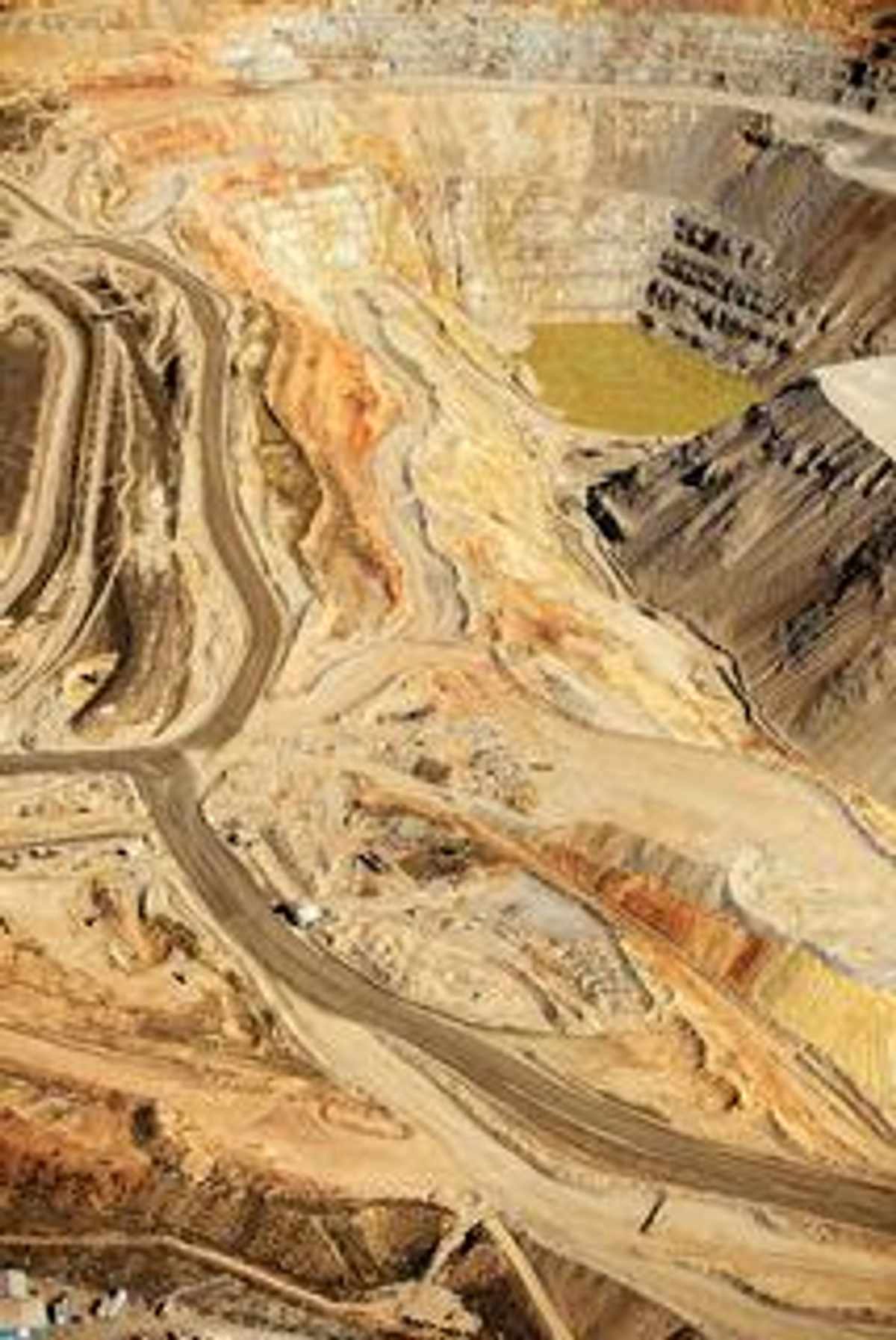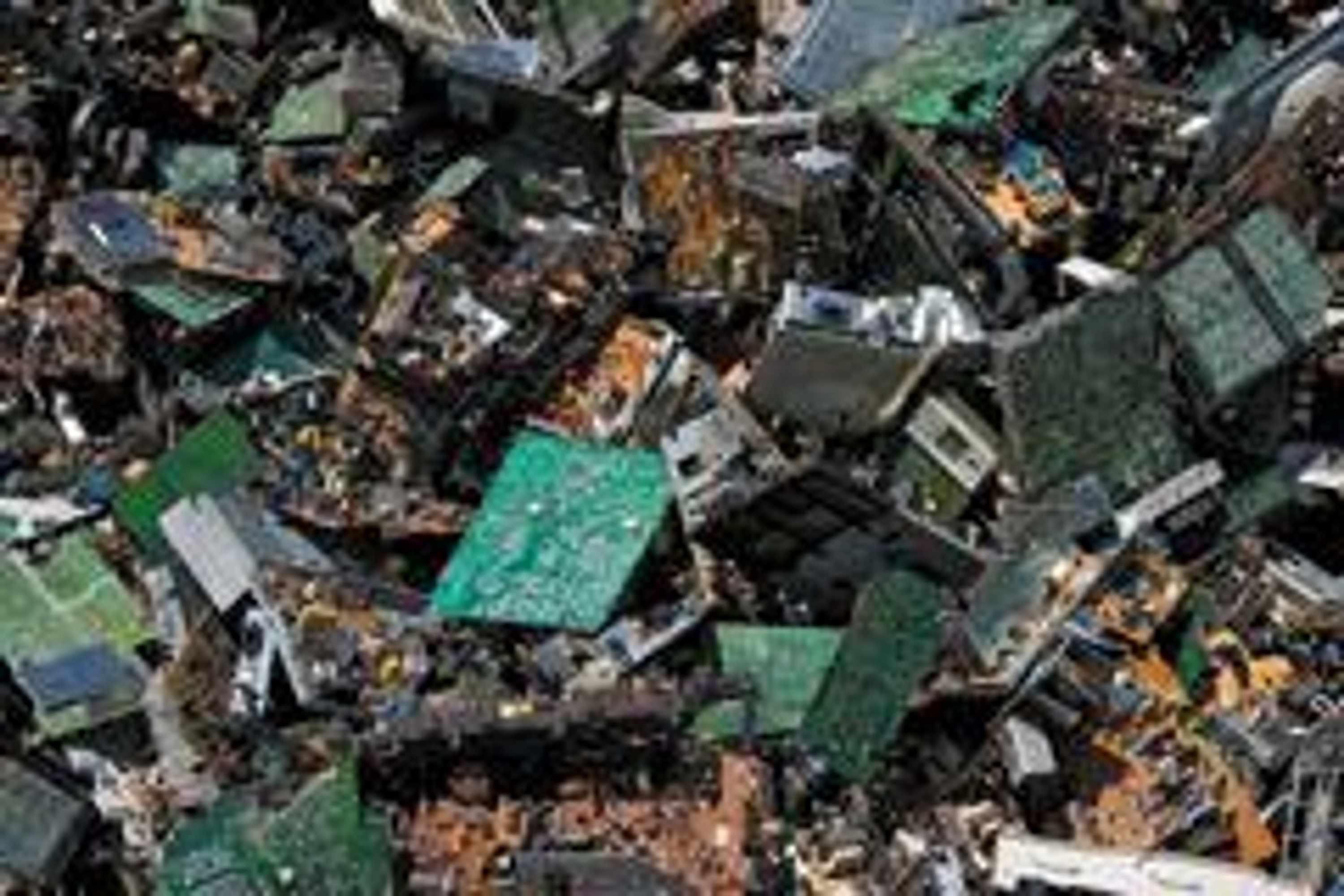Currently there is a massive hidden cost to our hyper-connectivity.
Currently there is a massive hidden cost to our hyper-connectivity.

 By Hannibal Rhoades "Everyday when you're walking down the street, everybody that you meet has an original point of view." Children of the late eighties/ nineties will no doubt recognize this as the astutely observational opening line of beloved TV show 'Arthur.' (See here if you don’t have a clue what I’m talking about.) But much has changed since this anthropomorphic aardvark was shuffling down the sidewalk in his mid-90’s heyday. Chances are that nowadays, when walking down the proverbial street, everybody that you meet will also be packing the latest piece of high tech gadgetry. Personal technology has become an indispensable social appendage for residents of richer countries but with at least 5.9 billion mobile phone subscribers worldwide, the relentless spread of these gizmos is global. In Africa, for example, half of the continents population is believed to own a mobile phone and numbers are on the rise. Going by the latest stats, that’s over 500 million mobile owners. Stats like these make mind boggling reading and considered alongside the advertising terminology surrounding our technology it is easy to get the impression that the whole world today truly is ‘connected’ (the tech industries favorite buzzword). In some ways this is true. If you really wanted to you could email your brother in Papua New Guinea, chat with a long lost aunt in Texas and order an Ikea flat-pack breakfast bar at the same time. All from the comfort of your flat in London. But there is a downside to the technology sector many are not aware of. [caption id="attachment_4089" align="alignleft" width="214"]
By Hannibal Rhoades "Everyday when you're walking down the street, everybody that you meet has an original point of view." Children of the late eighties/ nineties will no doubt recognize this as the astutely observational opening line of beloved TV show 'Arthur.' (See here if you don’t have a clue what I’m talking about.) But much has changed since this anthropomorphic aardvark was shuffling down the sidewalk in his mid-90’s heyday. Chances are that nowadays, when walking down the proverbial street, everybody that you meet will also be packing the latest piece of high tech gadgetry. Personal technology has become an indispensable social appendage for residents of richer countries but with at least 5.9 billion mobile phone subscribers worldwide, the relentless spread of these gizmos is global. In Africa, for example, half of the continents population is believed to own a mobile phone and numbers are on the rise. Going by the latest stats, that’s over 500 million mobile owners. Stats like these make mind boggling reading and considered alongside the advertising terminology surrounding our technology it is easy to get the impression that the whole world today truly is ‘connected’ (the tech industries favorite buzzword). In some ways this is true. If you really wanted to you could email your brother in Papua New Guinea, chat with a long lost aunt in Texas and order an Ikea flat-pack breakfast bar at the same time. All from the comfort of your flat in London. But there is a downside to the technology sector many are not aware of. [caption id="attachment_4089" align="alignleft" width="214"] Open pit copper mine[/caption] In a new publication concerning the impacts that our lust for gadgetry are having on the Earth, The Gaia Foundation draws our attention to the murkier side of this tale. Entitled ‘Short Circuit’ the report walks the reader through the lifecycle of our electronic products, flagging up inconvenient truths of their biographies at each stage, from life to death. Ultimately it aims to highlight the irony that as we become more ‘connected’ by our technology, we are becoming disconnected from the Earth and the impacts we are having on it, some of which are directly generated by our thirst for gadgetry. In order to mine the raw materials necessary for electronics manufacture, land grabs are being initiated on a huge scale by vast corporations world wide to secure resources. This process often goes hand in hand with dispossessing local communities of their land, destroying livelihoods. Once ‘purchased’ land is then strafed for ores and minerals, pulled from the body of the Earth in mines across the globe. Needless to say these devastate local habitats, pollute water sources and create waste deserts where once life flourished. The litany of elements necessary for production are then transported across vast tracts of ocean and land for manufacture in outsourcing hotspots such as China. Here workers are paid a pittance for dangerously long hours spent feverishly assembling circuit boards, computers and phones whose production proffers pollution and toxic waste. This story of origin is subsequently hidden from the consumer behind the perfect packaging and super-sleek design of our gadgets, the cleanliness of which belies the environmentally noxious legacy they have left and continue to leave in their wake as the lifecycle moves on. Given a helpful nudge by the obsolescence built into much of our tech we are upgrading faster than ever before. Australians, for example, replace their mobiles every 12-18 months. But where does the procession of obsolete gadgetry end up if not the draw of miscellaneous odds and ends which graces most households? The answer can be found in the particularly harrowing ‘end-of-life’ phase of our electronic goods. In a section that reads like Dante’s descent into Hell, ‘Short Circuit’ describes how our electronic cast offs find their way to E-wastelands where burning computers conjure towers of choking smoke, the rivers are black and sooty shanties crowd the peripheries like corrugated teeth at the mouth of Hades. [caption id="attachment_4090" align="alignleft" width="240"]
Open pit copper mine[/caption] In a new publication concerning the impacts that our lust for gadgetry are having on the Earth, The Gaia Foundation draws our attention to the murkier side of this tale. Entitled ‘Short Circuit’ the report walks the reader through the lifecycle of our electronic products, flagging up inconvenient truths of their biographies at each stage, from life to death. Ultimately it aims to highlight the irony that as we become more ‘connected’ by our technology, we are becoming disconnected from the Earth and the impacts we are having on it, some of which are directly generated by our thirst for gadgetry. In order to mine the raw materials necessary for electronics manufacture, land grabs are being initiated on a huge scale by vast corporations world wide to secure resources. This process often goes hand in hand with dispossessing local communities of their land, destroying livelihoods. Once ‘purchased’ land is then strafed for ores and minerals, pulled from the body of the Earth in mines across the globe. Needless to say these devastate local habitats, pollute water sources and create waste deserts where once life flourished. The litany of elements necessary for production are then transported across vast tracts of ocean and land for manufacture in outsourcing hotspots such as China. Here workers are paid a pittance for dangerously long hours spent feverishly assembling circuit boards, computers and phones whose production proffers pollution and toxic waste. This story of origin is subsequently hidden from the consumer behind the perfect packaging and super-sleek design of our gadgets, the cleanliness of which belies the environmentally noxious legacy they have left and continue to leave in their wake as the lifecycle moves on. Given a helpful nudge by the obsolescence built into much of our tech we are upgrading faster than ever before. Australians, for example, replace their mobiles every 12-18 months. But where does the procession of obsolete gadgetry end up if not the draw of miscellaneous odds and ends which graces most households? The answer can be found in the particularly harrowing ‘end-of-life’ phase of our electronic goods. In a section that reads like Dante’s descent into Hell, ‘Short Circuit’ describes how our electronic cast offs find their way to E-wastelands where burning computers conjure towers of choking smoke, the rivers are black and sooty shanties crowd the peripheries like corrugated teeth at the mouth of Hades. [caption id="attachment_4090" align="alignleft" width="240"] e-waste circuitboards[/caption] By documenting this category of unacceptable practices ‘Short Circuit’ drives home the message that our chronic disconnection from Earth, our only home, must stop. These poisonous deserts, created by the shipping of the ‘developed’ world’s techno-garbage to economically poorer nations, are perhaps the clearest visual example of the true costs of our throwaway consumer culture. The report calls all of us to reconsider our consumption habits, the real drivers of this unsupportable lifecycle and reminds us that we, the couple on the train, the businessman, the hipster, do have the power to make a change. Including details of inspiring initiatives for change emerging around the world ‘Short Circuit’ ends hopefully… Which brings me back to Arthur’s glorious musical intro that, like ‘Short Circuit’, asks you to: “Open up your eyes. Open up your ears. Get together and make things better, by working together!” ----------------------- You will be able to download the ‘Short Circuit’ Report for free here from Wednesday the 24th of April. Hard copies are available on request from the Gaia Foundation. Hannibal Rhoades is currently interning with The Gaia Foundation in London and is a contributor to Indigenous news journal ‘Intercontinental Cry’ where more of his writing can be found.
e-waste circuitboards[/caption] By documenting this category of unacceptable practices ‘Short Circuit’ drives home the message that our chronic disconnection from Earth, our only home, must stop. These poisonous deserts, created by the shipping of the ‘developed’ world’s techno-garbage to economically poorer nations, are perhaps the clearest visual example of the true costs of our throwaway consumer culture. The report calls all of us to reconsider our consumption habits, the real drivers of this unsupportable lifecycle and reminds us that we, the couple on the train, the businessman, the hipster, do have the power to make a change. Including details of inspiring initiatives for change emerging around the world ‘Short Circuit’ ends hopefully… Which brings me back to Arthur’s glorious musical intro that, like ‘Short Circuit’, asks you to: “Open up your eyes. Open up your ears. Get together and make things better, by working together!” ----------------------- You will be able to download the ‘Short Circuit’ Report for free here from Wednesday the 24th of April. Hard copies are available on request from the Gaia Foundation. Hannibal Rhoades is currently interning with The Gaia Foundation in London and is a contributor to Indigenous news journal ‘Intercontinental Cry’ where more of his writing can be found.


